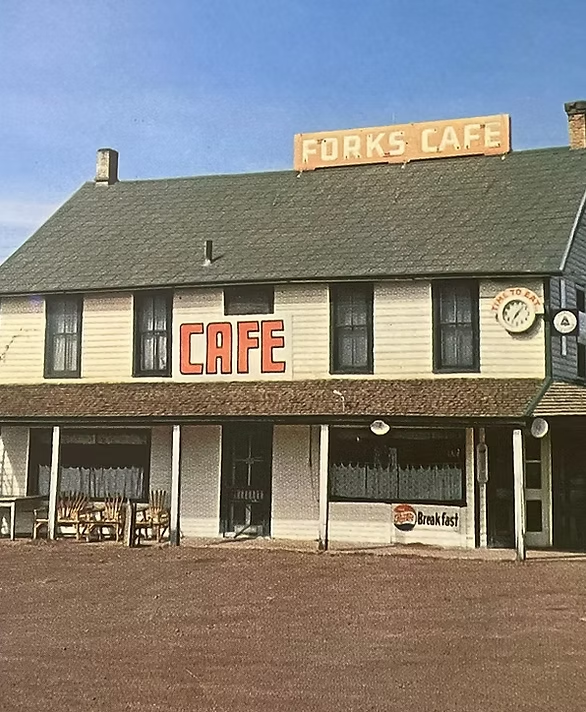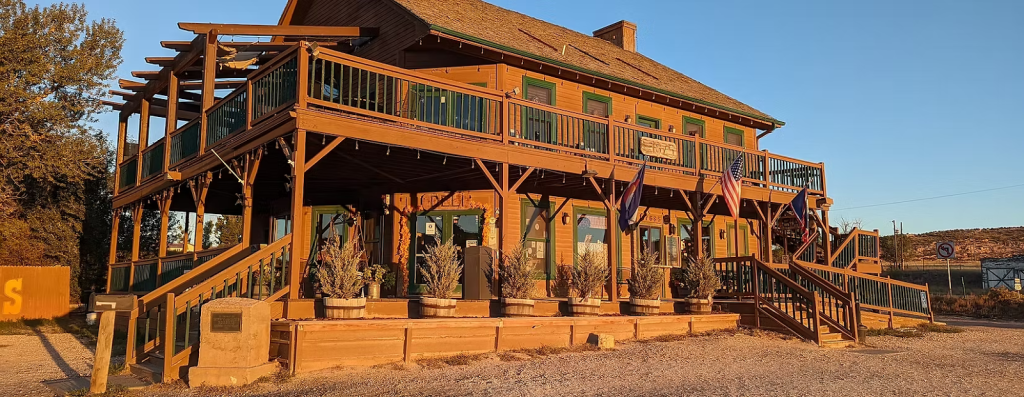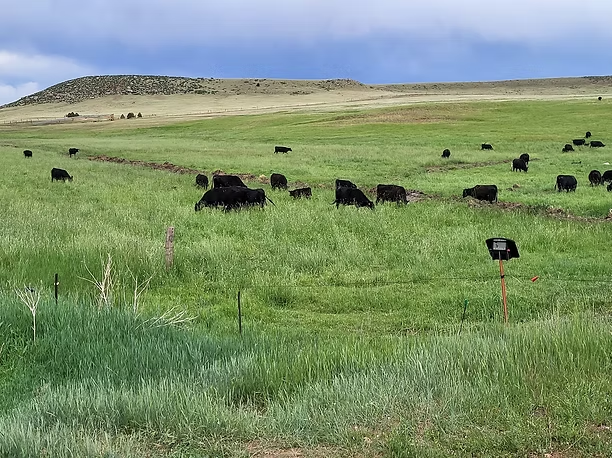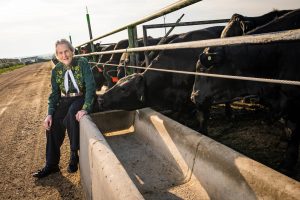First-generation rancher expands into retail with purchase of Livermore, Colo., landmark

Forks3-RFP-081825
Zach Thode and his family’s ranch are taking a step into the retail world with their recent purchase of the Forks, a restaurant and mercantile that has been a staple in Livermore, Colo., since 1875. He and his wife, Sherryl, along with their four children, live and work on Lehi Ranch.
Thode, a first-generation rancher and Livermore native, runs about 400 cows and 150 yearlings each year.
“To fit into the bigger of what we’re working on at our own ranching operation, to a more fully integrated ranch that goes from a cow-calf, all the way to selling meat to the consumer, the Forks just fit into our program perfectly,” Thode said. “That just meant we had to find the money to actually do it.”
Three years ago, the family began selling directly to consumers at the Larimer County Farmers’ Market in Fort Collins, leveraging their proximity to urban centers. But traveling to the market each week could be difficult. When the opportunity to buy the Forks came along, they saw a way to sell their products directly in the restaurant and mercantile.
“This gives us an opportunity to meet those needs without having to drive to town each week, because that can be a challenge,” Thode said.

TRANSITIONING
The transition from solely ranching to retail had its challenges, but the previous owners left them with a fully functioning and popular business, which made the process easier.
“Summertime is very busy,” Thode said. “The Forks is about 90% travelers in the summer, so it’s very forward-facing.”
The Forks is more than a restaurant to the Thodes. They hope to make it a place where urban and rural values meet.
“We want this to be a place where rural values and urban values meet,” Thode said. “In Colorado in 2025, it’s been very clear that the large urban centers don’t appreciate the same things, and don’t understand the struggles of rural lifestyle.”
Thode hopes the Forks’ farm-to-table and direct-to-consumer model will not only diversify the ranch’s income but also give urban customers a chance to engage with ranchers, farmers and rural community members.
“There are few places in Colorado where the urban population can go engage with the ag producer and understand and appreciate what the ag producer does,” he said. “We plan to build a place where we can bridge that urban and rural divide.”
The family plans to integrate more farm-to-table practices, such as building a greenhouse to supply produce for the restaurant and deli, and using all locally produced meat. They also hope to one day add a butcher shop.
“We just want to be available as a forward face to the urban community to come talk to us and ask questions,” Thode said. “And we want to be able to answer those questions in an empathetic way that doesn’t ostracize the urban population.”

BRIDGING THE DIVIDE
As a first-generation rancher whose parents grew up in an urban setting, Thode has experienced both sides of the rural-urban divide. When his parents first moved to the area, they were considered outsiders.
“We’ve devolved as a state-wide community to the point of calling each other names, and none of those things are good for our state, our community or really our families on an individual level,” Thode said.
Thode acknowledges the benefits of multi-generational ranches, such as established operations, extra help, advice and wisdom. But he also values the independence that comes without family tradition shaping every decision.
“Being as we’re first generation ag producers, there’s no father, mother, uncle or aunt that influences our decisions. This allows us to try things that most farmers or ranchers wouldn’t try,” he said. “Some of the things we just don’t know if it will be a bad or good idea, but we get a chance to try.”
The Thodes value sustainable practices and prioritize soil health in their operations. They work with multiple soil health programs to submit data and evaluate the effectiveness of their practices. The family also produces grass-finished beef for sale at the Forks.
Running the Forks is a family affair. Zach and Sherryl’s children work at the deli and restaurant in the summer. The Forks also sells the pasture-raised lamb, homegrown pork and grass-fed beef that the children show at the county fair. While the Thodes are glad their children can work and earn a paycheck at the family business, their main goal is not to pass on the ranch but to prepare them for their own paths.
“We want to equip them to be successful in their own endeavors, and if that means they are on the ranch that’s fantastic but if they want to move on from ag production or build their own operations, that’s fantastic too,” Thode said.
The family also hopes to showcase the work of other ranchers in the community.
“We have TVs in the restaurant and the bar, and we want to show pictures, history and information about how their food is raised and grown here in Larimer County,” Thode said. “We want to show all the beautiful ranches of Livermore and the history of these ranches.”
For Thode, buying the Forks isn’t just about selling more beef or expanding a business. It’s about giving customers a deeper understanding of the food on their plates and the people who raise it. By opening the doors of a 150-year-old Livermore landmark, he hopes to open a conversation that could bring rural and urban Colorado back to the same table.







